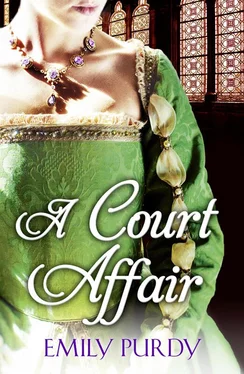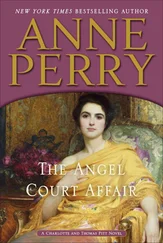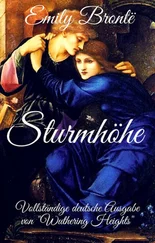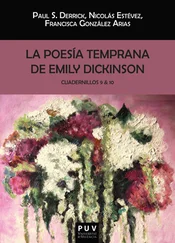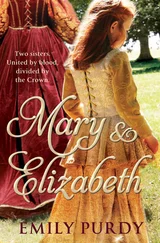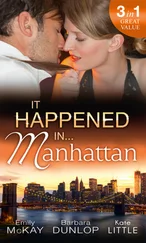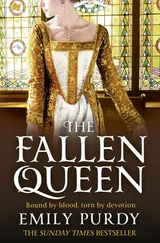A COURT
AFFAIR
EMILY PURDY

Carnal marriages begin in joy but end in sorrow.
—Sir William Cecil commenting on the marriage of Robert Dudley and Amy Robsart
Table of Contents
Title Page A COURT AFFAIR EMILY PURDY
Epigraph Carnal marriages begin in joy but end in sorrow. —Sir William Cecil commenting on the marriage of Robert Dudley and Amy Robsart
Amy Robsart Dudley and Queen Elizabeth I Amy Robsart Dudley and Queen Elizabeth I I used to think of her. She used to think of me.
Prologue: Elizabeth
1. Amy Robsart Dudley
2. Amy Robsart Dudley
3. Amy Robsart Dudley
4. Amy Robsart Dudley
5. Amy Robsart Dudley
6. Amy Robsart Dudley
7. Amy Robsart Dudley
8. Amy Robsart Dudley
9. Amy Robsart Dudley
10. Amy Robsart Dudley
11. Amy Robsart Dudley
12. Amy Robsart Dudley
13. Amy Robsart Dudley
14. Amy Robsart Dudley
15. Elizabeth
16. Elizabeth
17. Elizabeth
18. Amy Robsart Dudley
19. Amy Robsart Dudley
20. Elizabeth
21. Amy Robsart Dudley
22. Elizabeth
23. Amy Robsart Dudley
24. Amy Robsart Dudley
25. Amy Robsart Dudley
26. Elizabeth
27. Amy Robsart Dudley
28. Amy Robsart Dudley
29. Elizabeth
30. Amy Robsart Dudley
31. Elizabeth
32. Amy Robsart Dudley
33. Elizabeth
34. Elizabeth
Epilogue
Postscript
Further Reading
A Reading Group Guide
Discussion Questions
By the same author
Copyright
About the Publisher
Amy Robsart Dudley
and
Queen Elizabeth I
I used to think of her. She used to think of me.
The Church of Our Lady in Oxford
Sunday, September 22, 1560
I told Kat to fetch a chair and be my dragon, to sit outside my bedchamber door and guard my lair after I was gone.
“Let no man or woman cross my threshold and enter here. Say I have a black and red beast of a headache, and any who dare disturb my rest do so at their own peril,” I instructed as, one by one, the regal layers of pearl-and-jewel-encrusted, gold-embroidered, white-brocaded satin tumbled to the floor, followed by the cumbersome farthingale, stays as stiff as armour, rustling layers of starched petticoats, bejewelled ribbon garters, and the silk stockings Robert bought me, specially ordered from Spain by the score—twenty pairs at a time, in a typically extravagant gesture—and, lastly, like a bridal veil, a shift of cobweb lawn thin enough to read a book through if the light were good and the ink black enough.
With all my court finery pooled around my naked feet, the jewels on my discarded gown seeming to float like ruby red and sapphire blue flowers upon a froth of rich cream, I stood straight and breathed deeply, stretching my arms high above my head. If Robert had seen me thus, he would no doubt have compared me to Aphrodite emerging newborn and naked from the surf. But I could not think about that now; I could not think about Robert. I took another deep breath before stepping out of the rich, luxurious fabric froth and trading it all for a shirt of unbleached linen and the plain brown leather and cloth of a common man’s clothes.
I ignored Kat’s concerned queries and anxious pleas as I sat and pulled on the high leather riding boots while she circled and flapped around me like a bird futilely squawking and batting its wings in a gilt-barred cage, pinning my hair up tightly even as she implored me not to do this foolish, insane, and dangerous thing.
The moment my telltale flame-coloured tresses were tucked out of sight beneath a brown cloth cap, I stood and imperiously waved her aside, cutting off Kat’s chatter like a headsman’s axe with one flourish of my long-fingered, marble white hand. And, in the stark silence that followed, I snatched up the leather gloves and riding crop and headed for the secret door and stairs that descended into my private garden, where I so often walked in the mornings still wearing my nightgown before I girded myself in queenly regalia to face the business of the day, the heavy responsibility of ruling the realm, and feeling, sometimes, like one lone woman against the whole world.
I hugged tightly to the wall as my booted feet felt carefully for each one of the stone steps in the dim and close torchlit stairway. A staircase, my mind kept repeating. It all ended with a staircase. By mishap or murder, it all ended with a staircase.
A common hired barge waited for me upon the river, then a horse, a fleet bay stallion, muscular and lean, yet another gift from Robert. It was a dangerous and heady sensation to be out in the world anonymous and alone. I, the Queen of England, unencumbered by escorts, chaperones, and guards, was making my way as a lone woman, disguised in male attire, on a secret pilgrimage. Anything could happen. I could be set upon by a gang of ruffians or thieves; I could be murdered, or, if my sex was discovered, raped, then left for dead in a ditch, or, my identity unknown or disbelieved if I proclaimed it, forced to live out my days catering to the lusts of men as a prisoner in a bawdy house. Every step I took was fraught with danger, but we were old friends, danger and I; danger of one kind or another had dogged my steps since the day I was born. Safety was a stranger and a state more illusory than real to me. I had outlived the shifting moods and murderous rages of my father, and even when my own sister wished me dead and futilely and painstakingly sifted the haystack to find a shiny silver needle of guilt with which to condemn me, still I managed to prevail and preserve my life.
I was alive, but another woman was dead—a life for a life. She had died alone and unloved with no one to protect her from danger, to keep Death at the hands of cruel Fate, her own desperation, fatal mischance, or all too human villainy, at bay. That was the reason for my solitary journey; that was why I had stripped myself of my royal persona and raiment and was riding hard to Oxford in a pouring rain that cloaked my sorrow as silent tears coursed down my face.
I was in time to see the funeral procession pass. Mourners, and those just curious to catch a glimpse, lined the roadside and stood bareheaded in the pounding rain, the men clasping their caps over their hearts.
I closed my eyes and thought of Amy, weeping and raging, pounding her fists upon the mattress of the bed she should have been sharing with her husband in a home of her own instead of sleeping in alone as a perpetual houseguest of some obliging friend or gentleman retainer of Robert’s, eager to do the high-and-mighty lord, the Queen’s Master of the Horse and rumoured paramour, a favour by providing lodgings for his unwanted and inconvenient wife. How she must have hated me and raged against the unfairness of it all: at the cancer marring the pink and white perfection of her breast and stealing her life away, sapping her vitality and strength like an ugly, bloated, blood-hungry leech that could never be sated until her heart ceased to beat; at the husband, once so in love with her, who desired her death and might even have schemed to hasten it, so he could have another who came with a crown as her dowry; and at the woman—the Queen—she thought had stolen the love of her life away. She had every reason to be angry, bitter, and afraid, and to hate me.
When the embalmers opened the body of my father’s first queen, the proud and indomitable Catherine of Aragon, they found her heart locked in the ugly black embrace of a cancerous tumour. Some took it as a sign that the woman who had used her last reserve of strength to write to my father, Lastly, I vow that my eyes desire you above all things, had actually died of a broken heart. Was Amy’s deadly malady of the breast also physical proof of the pain inside it, a visible manifestation of the broken heart of a woman mortally wounded when Cupid’s arrow was forcibly pulled out? If that were true, the gossip and rumours were right: we—Robert and I— had murdered Amy. Robert had pulled the arrow out, carelessly and callously, leaving her alone to suffer and bleed, while he gave his love to me. And I, a selfish and vain woman, exulting in the freedom and new-come power to control my own destiny, eager for passion without strings, had accepted it, like an offering of tribute and desire laid at the feet of an alabaster goddess.
Читать дальше
